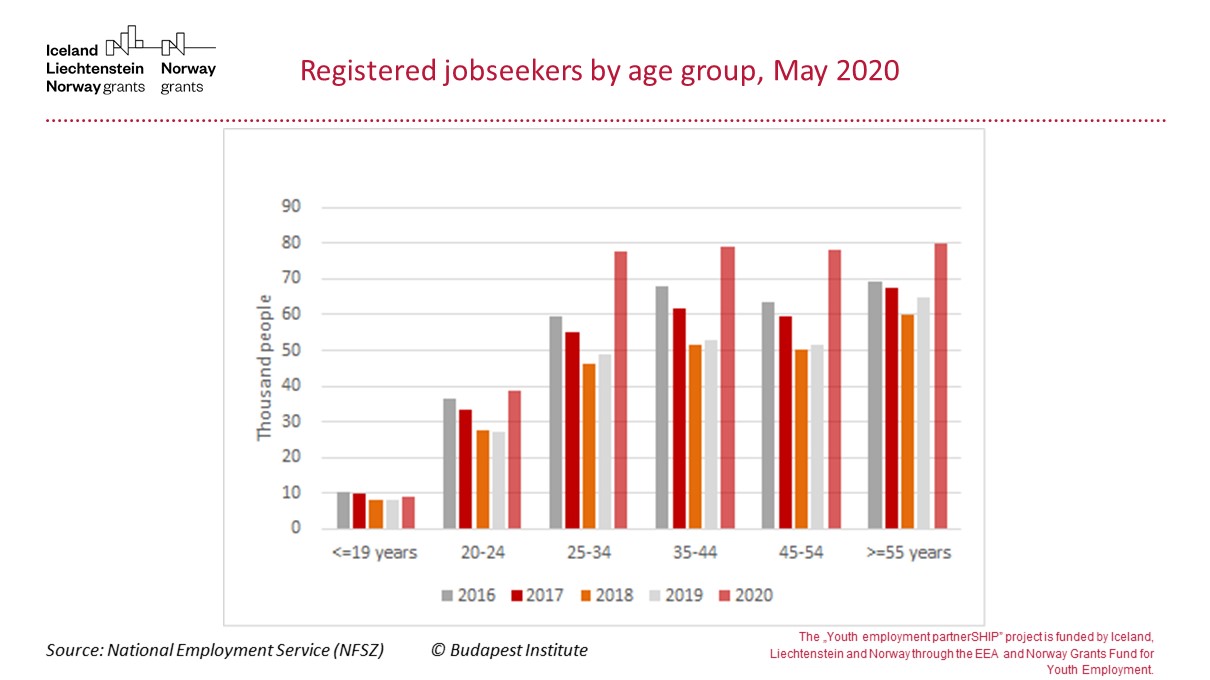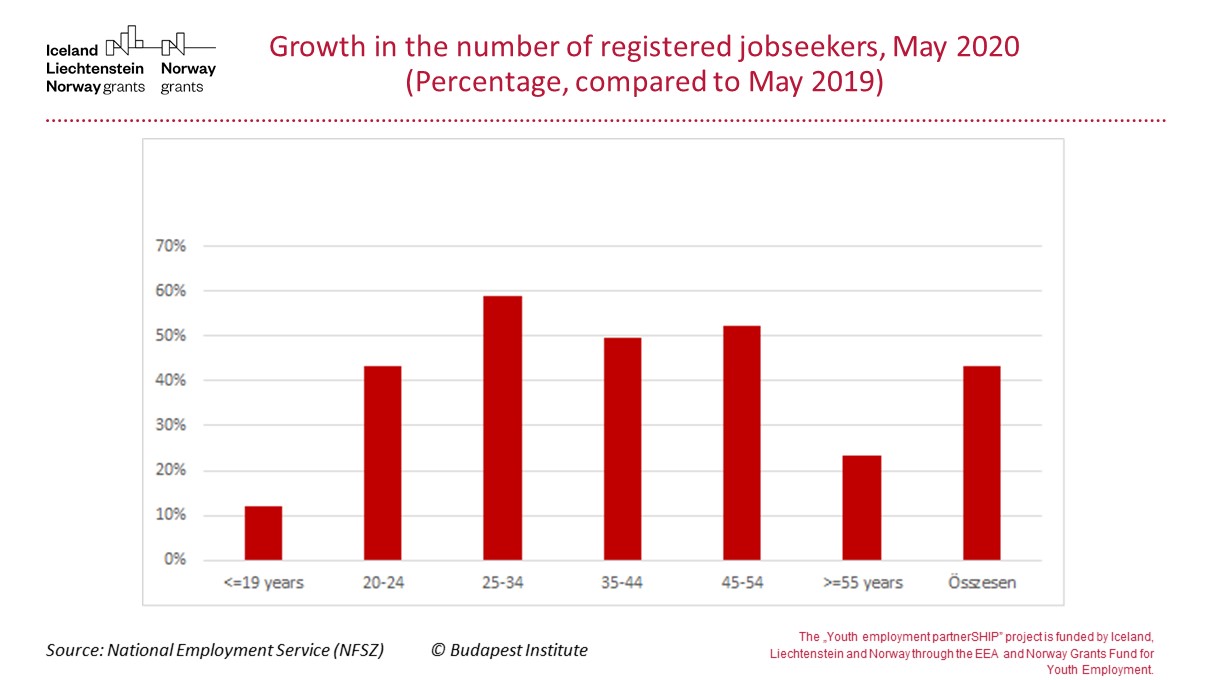The pandemic puts youth in dire straits
01/07/2020
There are 43% more young jobseekers in Hungary in May 2020 than in 2019, which can have long-term consequences on their career.
The economic crisis brought about by the COVID-19 pandemic has resulted in an increase in the rate of unemployment and has put youth in an especially difficult situation. As the latest ILO report notes, the pandemic harms them through multiple channels. Apart from the reduced number of available jobs, the temporary disruptions in education and trainings hurt their future chances of employment. Lockdown measures and remote work also make it harder for young people to look for jobs. According to a recent ILO survey, at least 1 in 6 young people have lost their jobs globally, and the work hours have decreased by 23% on average for those who have remained in employment.
The most recent data to describe the Hungarian labour market by age groups is from May 2020. The number of jobseekers aged 20 to 24 has risen considerably as well, by 43% compared to May 2019, while the pandemic has effected people aged 25 to 34 the worst.


Young people having left education in June 2020, about to start their careers, face the considerable risk of worse labour market outcomes than their peers leaving school the year before. Firms this year hire less new employees, which harms young people’s chances of finding employment. Youth unemployment could have a lasting effect throughout one’s career, according to many studies using international and Hungarian data (this is called the scarring effect).
Active labour market instruments that support youth employment could play an especially important role under current circumstances in mitigating the labour market shocks of the pandemic. Budapest Institute is working on measuring their effectiveness within the Youth Employment PartnerSHIP project, financed by the EEA and Norway Grants Fund for Youth Employment. The project was launched at the end of 2018 in order to measure the effectiveness of labour market programs of the Youth Guarantee system in Spain, Hungary, Italy and Poland.
The project in Hungary focuses on the 90-day wage subsidy programme, which consists in covering the wages of young people for up to 3 months (there is no requirement to stay in that job after the 3 months end, for neither the employer nor the employee). Amid the economic crisis induced by the COVID-19 pandemic, this labour market instrument could be especially popular among firms that would want to hire new employees but would not be able to do so because of their weakened financial situation and who would not want to make long-term commitments in these uncertain times.
Our preliminary results suggest that the 90-day wage subsidy programme indeed improves the employment chances of young people in the programme. However, less educated young people with worse employment history are less likely to be reached by the programme. To increase the effectiveness of these labour market instruments, Youth Guarantee programmes should also focus on reaching young people in vulnerable positions who are likely to face worse labour market outcome from the start of their careers.








